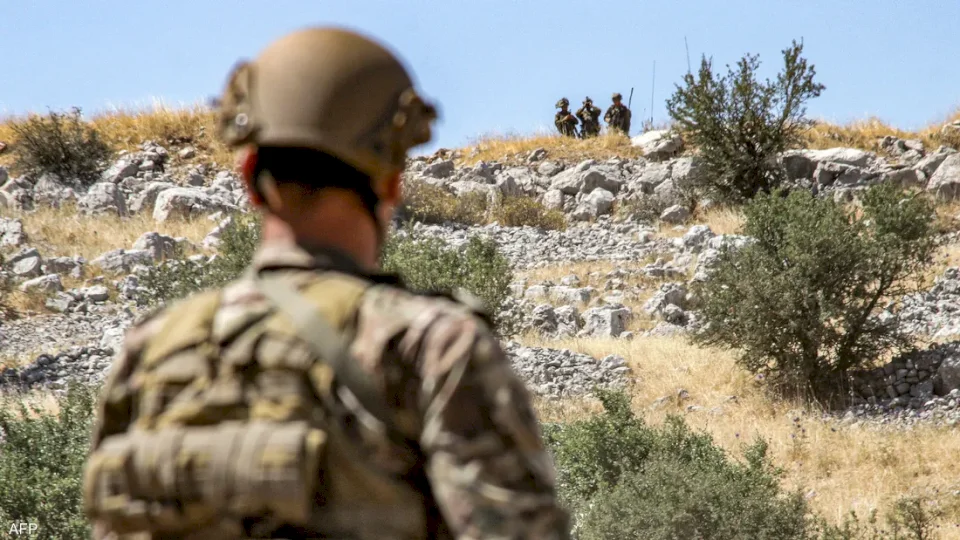
Conflicting American Signals: How Does Lebanon's Mission Complicate Against Israel?
SadaNews - Beirut is receiving conflicting signals from Washington regarding the Lebanese Army's efforts to confine weapons to the state, a situation that complicates attempts to avoid a higher military escalation from Israel, coinciding with strikes that Tel Aviv claims target Hezbollah's infrastructure.
Days after American military officials praised the Lebanese Army's efforts to disarm Hezbollah, the visit of its commander, Rudolf Haikal, to Washington was canceled in what has been described as a "punitive" American move.
Weeks earlier, during a meeting of the committee overseeing the implementation of the ceasefire in Lebanon (the mechanism), its chairman, U.S. General Joseph Clearwater, commended the Lebanese Army.
Clearwater stated that "the professionalism of the Lebanese Army and its commitment are commendable. Its performance reflects the strength of the Lebanese Army and its determination to secure the future of its homeland."
Subsequently, U.S. Central Command Commander Brad Cooper offered a similar assessment, stating: "Our Lebanese partners continue to lead efforts to ensure the successful disarmament of Hezbollah."
Cooper added that the Lebanese Army has already removed "approximately 10,000 rockets, around 400 shells, and over 205,000 pieces of unexploded ordnance."
Cancellation of the Army Commander's Visit to Washington
However, numerous changes occurred regarding Haikal's planned visit to Washington, culminating in its cancellation.
Initially, the level of officials that Haikal was supposed to meet was downgraded, then his meeting with members of Congress was canceled, and finally, Haikal announced the complete cancellation of the visit.
However, the Americans say they canceled the visit due to Haikal's criticism of the Israeli strikes on Lebanon.
Republican Senator Lindsey Graham led American criticisms of his statements, writing on the platform "X": "It's clear that the Lebanese Chief of Staff, due to his reference to Israel as the enemy and his almost non-existent efforts to disarm Hezbollah, represents a significant setback in the efforts to move Lebanon forward. This combination makes the Lebanese Army an unprofitable investment for America."
Graham's statements are almost a precise reflection of what is being said in Israel, where senior Israeli army officers have expressed the same sentiment in local media briefings.
According to an analysis by the Israeli newspaper "Haaretz", "the gap between what American military officers say and what American politicians express does not reassure the Lebanese leadership, but rather swings between a significant fear of a resumption of war between Israel and Hezbollah."
Weapon Confinement and Israeli Withdrawal
Lebanese President Joseph Aoun continuously attempts to highlight the Army's efforts to confine weapons to the state to spare his country from a path toward war, recently stating: "Nothing prevents us from reaching a conclusion on limiting Hezbollah's weapons and making decisions. Ultimately, these are the fundamentals of state-building."
Aoun’s position is not new, as he has previously expressed it in past speeches, and under intense pressure from U.S. envoy Tom Barak, he compelled his government to adopt a decision calling for the disarmament of Hezbollah, ordering the Army to present a plan to achieve this goal by the end of this year.
At the same time, Lebanon demanded the withdrawal of Israel from the five sites it still controls in the south, a halt to its airstrikes on the country, and the commencement of the return of Lebanese detainees held by Israel.
Until about six weeks ago, these demands seemed reasonable to Barak, who even proposed a new plan during which Israel would halt its attacks for two months, during which negotiations would take place regarding security arrangements and the demarcation of land borders between the two countries, outlining a demilitarized zone along the borders while Israel gradually withdraws from those five sites.
However, Israel, as Barak stated, categorically rejected this proposal, and instead significantly increased the scope of its airstrikes, accusing the Lebanese Army of cooperating with Hezbollah and refusing to inspect homes in southern Lebanon, where Hezbollah, according to Israeli intelligence, stores weapons and ammunition.
A Lebanese analyst residing abroad told "Haaretz": "It is unclear what Israel wants. Why does it feel the need to continue controlling those five sites, which are merely a bargaining chip in negotiations?"
He also questioned: "Why isn't there a negotiation framework that provides the Lebanese government with the levers it needs against Hezbollah?"
Meanwhile, Hezbollah has so far limited its response to political and media criticisms of Israeli attacks, chiefly targeting the Lebanese government for its military and diplomatic weakness before Israel, which violates the ceasefire.
In the meantime, the Lebanese government finds itself caught in a political minefield, struggling with the difficulty of disarming Hezbollah in a manner satisfactory to the United States and Israel while avoiding being drawn into a war whose consequences appear dire.
Earlier this month, Barak pointed out the challenges posed by disarming Hezbollah, warning of the possibility of "entering into a civil war."

30 Bombs.. A "Unique" Moment Exploited by Washington and Tel Aviv to Target the Supreme Le...

Who are the military leaders that Iran announced their deaths?

"Crossings and Borders": Al-Karama Crossing Continues Operation as Usual with Possible Cha...

Occupation continues to tighten its military measures in the West Bank governorates

How will the financial markets and stock exchanges open the first session after the strike...

Health: Martyr Succumbs to Injuries from Occupation Bullets in Dora

How Did America Clone Iran's Weapon to Strike Tehran?

